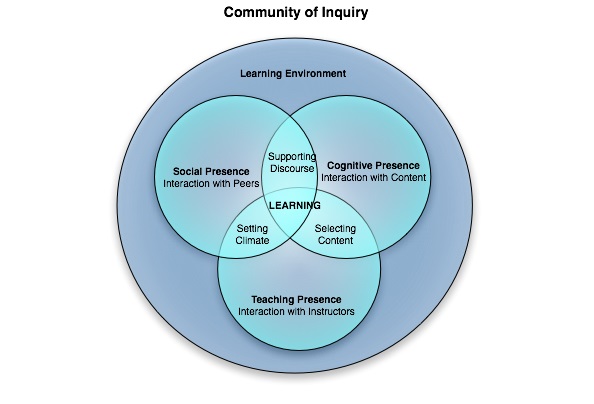| |
Using Serious Games in Learning
If you’re considering using a game to help your students learn, do you start with the game mechanics or the game concept? When asked about this, Game Studies scholars Dan Cermak and Katryna Starks say to always start with the idea and concept first. “Turn that into a vision: who’s your user? What expectations should they have? What experience do you want to give them? What’s the world like?” That vision will lead to the core pillars, like features and mechanics. Also important to consider initially is where you are placing this game. “If you’re placing it in a [K-12] classroom, then you have to consider how it meets curriculum standards, how can the game bolster knowledge, and how it can be effective in helping with standardized testing.” Dan and Katryna talk more about the resources on campus for game design and examples of serious games (games used for learning), in this month’s Art of Teaching lunchtime seminar.
|
|
|
| |
Volunteer for the January Grad Academy!
The Graduate Academy for College Teaching is the pre-semester training program for new TAs at the University of Illinois. We offer a robust TA training because we can draw many volunteers from our excellent teaching community. You can help! Faculty and other experienced instructors can pitch a concurrent session on a teaching & learning topic of your choice. Experienced TAs can work from a CITL-provided lesson plan to introduce new TAs to the basics of teaching. New or experienced instructors can help facilitate Microteaching. The January Grad Academy takes place January 10-12, 2024. Contact Lucas Anderson at lander23@illinois.edu if you are interested in helping.
|
|
|
| |
Generative AI Training and Consultations
Recurring: every Monday and Tuesday, 12pm - 4pm
Location: CITL Innovation Studio, Room 182, Armory Building
Walk-ins and appointments
Host: CITL (provides easy access to the latest versions of key GenAI tools and consultations)
Designing Cooperative Learning Experiences
Tuesday, November 14, 11:30am - 12:45pm
Location: Online
Registration Link
Host: David Favre (CITL)
More than a Contract: Creating an Inclusive Syllabus
Tuesday, November 14, 1:30pm - 3:30pm
Location: Armory Room 182
Registration Link
Host: Jordan Leising (CITL)
Canvas Open Office Hours
Recurring: every Thursday, 11am - 12pm
Zoom
Host: CITL Instructional Support Team
Stay tuned for this semester's events! Bookmark the CITL Event Calendar for all upcoming workshops and the Training Services (formerly FAST3) Calendar for additional training opportunities.
|
|
|
| |
This month’s teaching tips from CITL’s UDL Team focus on the first of the three principles that make up the UDL framework: Provide Multiple Means of Engagement. The Center for Applied Special Technology (CAST) explains that because learners differ in the ways they can be engaged and motivated to learn, providing multiple options for engagement is essential.
In Reach Everyone, Teach Everyone, Thomas Tobin maintains that “a UDL approach is about purposely thinking differently about the interactions we create for our courses.” The Community of Inquiry (COI) model shown below offers one useful way of thinking about the various ways learners can interact and engage: with the content (cognitive presence), their instructor (teaching presence), and their peers (social presence).
|
|
|
| |

Figure adapted from R. Garrison, T. Anderson, L. Rourke et al. Community of Inquiry Model (2007)
Providing multiple means of engagement in each of these spheres of discourse stimulates learners’ interests and motivation for learning while also offering them greater opportunities to contribute to the course learning community. Here are a few examples of options for increasing student-content, student-instructor, and student-student engagement.
Student-Content Engagement
- Activate students’ prior knowledge early in each learning module (e.g., by inviting students to relate a concept or topic to current events, their personal experience, or to another concept or topic they learned about previously in the course).
- Provide guides for students’ learning (e.g., key words lists, guiding questions to focus reading, links to items for further study, rubrics, templates, checklists).
- Provide multi-stage projects that allow students to build on their accumulated learning in the course.
- Use low stakes formative assessments and repeatable learning checks with mastery-oriented feedback to help reinforce key concepts and ideas.
Student-Instructor Engagement
- Send a welcome email message and/or video prior to course launch.
- Post regular/weekly announcements that do more than housekeeping by helping learners synthesize information covered, get them excited about what’s coming up in the next unit or week, and highlight exceptionally good work by individual students.
- Maintain a virtual office for live web conferencing or text chat.
- Use the course blog tool as an informal communication channel.
- Provide a Q & A Forum for course-related questions that allow students and the instructor to respond to course content questions.
- Solicit Informal Early Feedback (IEF) on instructional activities.
- Leverage online journals as a reflective student-instructor communication channel.
Student-Student Engagement
- Leverage the online discussion board (instructor-graded and/or peer-reviewed).
- Provide opportunities for collaborative group work (e.g., role playing, case studies, debates, group presentations).
- Use wikis to facilitate collaborative authoring.
- Provide informal discussion areas for students.
These lists are by no means exhaustive, and CITL’s UDL Team would love to hear about, and showcase, strategies you’ve used to increase engagement options in your course. Additionally, if you’re looking to enhance the accessibility and inclusivity of your course and teaching, CITL's Universal Design for Learning (UDL) Team is here to help. You can reach us at CITL-UDLTeam@illinois.edu. Tune in next month when we look at some examples of how information and content can be presented in different ways to provide multiple means of representation, the second principle in the UDL framework.
Selected Resources:
|
|
|
|
|
|
| |
| |
| |
| |
|
|
| |
| |
|
|
| |
|